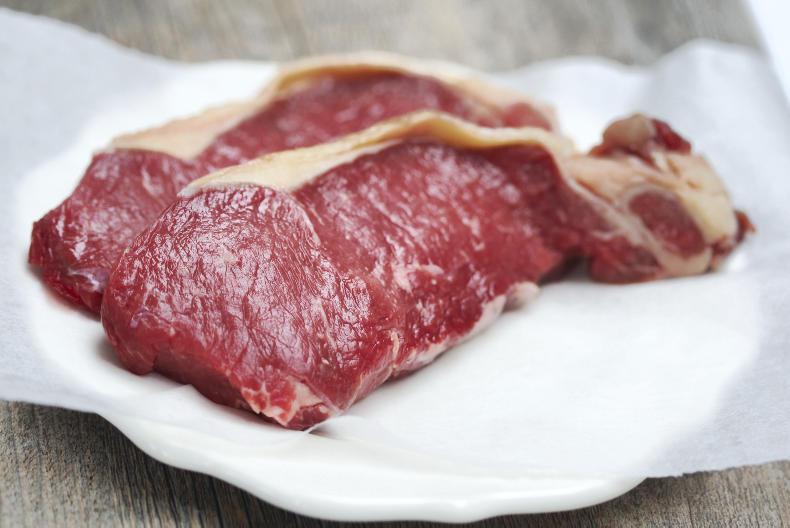UK retailer the Co-operative announced this week that it has suspended selling imported meat in its stores in a bid to source 100% British product.
Some reports suggest that the announcement will affect Irish exports in supplying fresh meat to the British retail market. However, this week’s statement is essentially nothing new from the Co-op as it has had a long-standing British sourcing policy.
“The Co-op is not a customer for Irish meat and has not sourced Irish beef for over a decade,” a Bord Bia spokesperson said. The supermarket chain is the UK’s fifth largest retailer with a 6.1% share of the British grocery market.
In the beef sector, it is understood that only around 15% to 20% of Irish beef imports into Britain currently end up on retailer shelves. Supermarket chains such as Morrisons and Aldi already have a policy of only selling UK-sourced fresh beef.
Quality
“Irish meat is supplied to numerous outlets in the UK, based on long-established relationships and a reputation for quality,” an IFA spokesperson commented.
Retailers that sell Irish beef, such as Tesco, Asda and Sainsbury’s, only sell it outside their premium ranges. Irish beef in the UK cannot be labelled with the British quality assurance logo Red Tractor.
“Bord Bia regularly undertakes meetings with customers for Irish beef, all of whom have restated their continued commitment to sourcing Irish beef,” Bord Bia’s spokesperson said.
Other exporters
The announcement from the Co-op this week is likely to have a greater impact on sales of New Zealand lamb and Danish pork.
“We are adding 365 days a year, bacon and lamb to our 100% British commitment. That’s for everything from sandwiches, to ready meals to fresh meat,” Co-op Food CEO Jo Whitfield said in this week’s statement.
The pledge to source 100% British meat in pies, sandwiches and ready meals is seen as significant undertaking and commitment by the supermarket chain.
Nationalism
There has been a growing nationalism among British consumers and the Co-op has called on other retailers to follow suit with its commitment to British farmers.
However, Bord Bia’s spokesperson pointed out: “The UK is not self-sufficient in beef and needs to import 35% of its beef consumption to meet demand. Ireland accounts for 70% of the UK’s imported beef. The nearest competitor is Holland with 7%.”
ICMSA president John Comer said that it was “impossible for the UK to meet its food requirements” from locally sourced produce.
In NI, farmers welcome growing nationalism in the British market as NI produce is labelled as British and can carry the Red Tractor logo. Sales of New Zealand lamb in UK supermarkets at times of peak domestic supply has continued to be a source of frustration for NI farmers.
“[The Co-op] buying UK fresh meat all year round is a very welcome step,” Ulster Farmers’ Union president Barclay Bell said this week.
Beef trends: Ireland ahead of EU average
Hard Brexit, soft Brexit and future UK market access: what leaders said







 This is a subscriber-only article
This is a subscriber-only article










SHARING OPTIONS: